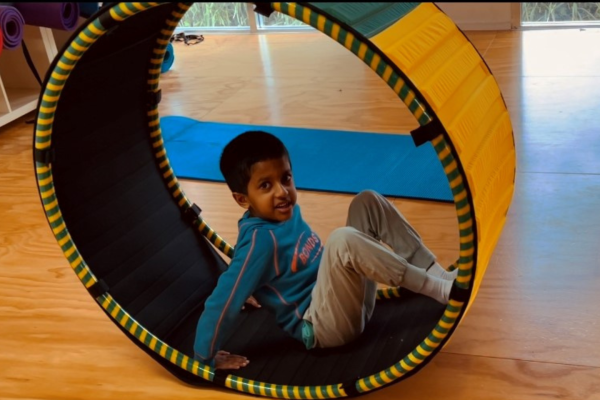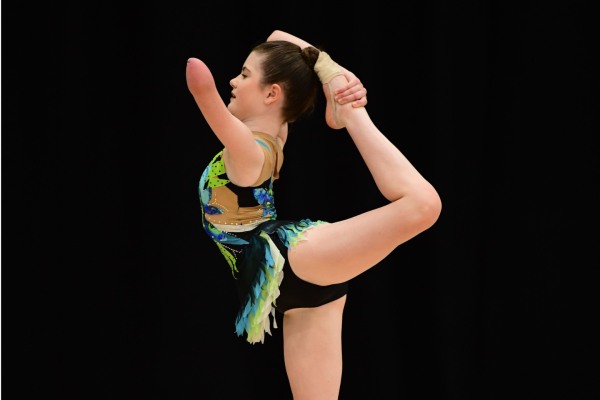
Grief, acceptance and special needs parenting: it’s complicated
By Pieta Shakes
My daughter was diagnosed before she took her first breath.
I held medical reports before I held her in my arms. I was given that chat about ‘options’ in my late pregnancy, while she was kicking me from inside my womb, sitting just below and well within my heart.
It was here that I was given certain expectations to prepare for; limits, boundaries and yet such a sense of unknown.
It was at this time I was encouraged to grieve, to allow myself to progress through the stages.
The stages of grief, it sounds so orderly doesn’t it? This stage you will feel disbelief, this stage you will feel anger and so on. Great in theory, not so fitting in reality.
The concept that there is some form of process that one moves into, along and out of doesn’t seem to ring true for many and was not the case for myself.
My thoughts and emotions were far from orderly in those last weeks of pregnancy and those first months of parenting.
From the joy of choosing an outfit for the trip home from hospital, to the lump in my throat when searching for specialists who had heard of her rare condition.
From seeing her suck her thumb in the final prenatal scan, to the internal angst when people would comment ‘as long as she’s healthy’.
From the overwhelming love when she clasped my hand the first time, to the tears of guilt that ran down my face with the thoughts that I had somehow caused any hurdles she may face.
A year later, while studying a child health subject within my Master of Nursing, a particular point jumped out at me: ‘A special needs parent must grieve the loss of the child they thought they were to have, before they can fully accept the child they do have.’ I remember sitting with this point for some time. I felt it offered me some comfort, some space to allow the emotions that I had felt, the worry, the loss, as some functional way towards being able to embrace my daughter completely and to be the better mother that she deserved, the one who doesn’t feel sadness anymore.
Further years down the track I sit here today and reflect on this very point.
Grief, do I still feel it? When was the moment that I transitioned from a place of grief to acceptance?
Sadness, worry, anger, guilt, all these emotions continue to visit me, although they come knocking on my door very infrequently. Most of my time is filled in complete awe of my child, the joy in watching her grow, acceptance of where we are at this point and planning our future directions that fully support her individuality, needs and strengths.
Then there is the moment, usually caught off guard when my head starts spinning like Alice falling down the rabbit hole.
Yet, if I reflect on what I’ve been told, what I’ve learned in my education, these off guard moments suggest I haven’t fully grieved and that I haven’t completed accepted my daughter and our circumstances yet, that I can’t embrace our lives as they are.
Today, I challenge this idea. Today I challenge the idea of grief as a process of stages that parents move through. I challenge the idea that we are either grieving or in a place of acceptance.
I didn’t grieve the loss of some mythical child, I felt anger and worry towards potential challenges for my girl. I didn’t wish for her to be anyone other than herself as she is, however I also hoped that she would reach her next milestone.
I wouldn’t change her for the world, but I’d give myself for her world to be easier.
I gave up on my early pregnancy hazy future prediction of life and gained so much more than I ever imagined.
These thoughts, these emotions, they are complicated. I think the concept of grieving loss to find acceptance only offers a simplistic black and white view.
As parents, we can truly accept, we can love, we can be in complete awe and yet feel sadness concurrently. We can feel pride, joy and anxiety. We can feel loss and overwhelming gain at the same time.
I can’t help but wonder if we need to find a new word, a new concept rather than grief. Being invited to grieve, are we missing the opportunity of telling new parents and ourselves, of the overwhelming joy, pride, love and growth that will come?
Are we suggesting that parenting a child with a disability is simply sadness and loss?
Words matter, words influence. Let’s tell the full story.






